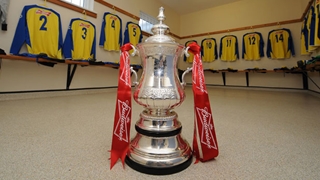
Yeovil Town 2 Sunderland 1 at Huish, Yeovil, on 29 January 1949
Sunderland were a top side in the old First Division. Len Shackleton, their star player who was capped five times for England, had joined them from Newcastle United for a British transfer record fee of £20,500 the previous year. In the 1949-50 season they missed out on the League title by two points.
Yeovil Town were sixth from bottom in the Southern League when Sunderland, ‘the Bank of England club’, came to Somerset. Their part-time players worked in aircraft or glove factories, pubs and offices, and they were a 5,000-1 shot to win The Cup.
“Yeovil were roared on by a crowd of 17,000 – amazing for a town with a total population of less than 23,000 – and they deserved their win”
Yeovil did have one or two things going for them. Their Huish pitch had a famous slope and, in Alec Stock, they had an astute player-manager whose career would take him to Leyton Orient, Arsenal, AS Roma, Queens Park Rangers, Luton, Fulham and Bournemouth.
Sunderland may have started the contest in a complacent frame of mind but on an afternoon of fog and tension they found themselves on the wrong end of a 2-1 scoreline. Yeovil were roared on by a crowd of 17,000 – amazing for a town with a total population of less than 23,000 – and they deserved their win.
They were ahead through Stock after 26 minutes. Sunderland equalised through John Robinson with 15 minutes to go and it went to extra time. Close to the midway point Yeovil’s Ray Wright seized on a wayward Shackleton pass and set up Eric Bryant for a shot that flew past Sunderland ‘keeper Johnny Mapson.
The part-timers had captured the respect of the whole country. They may have been swamped 8-0 by Manchester United in the next round but they had achieved what is arguably still the most famous victory by a non-League side over League opposition.







